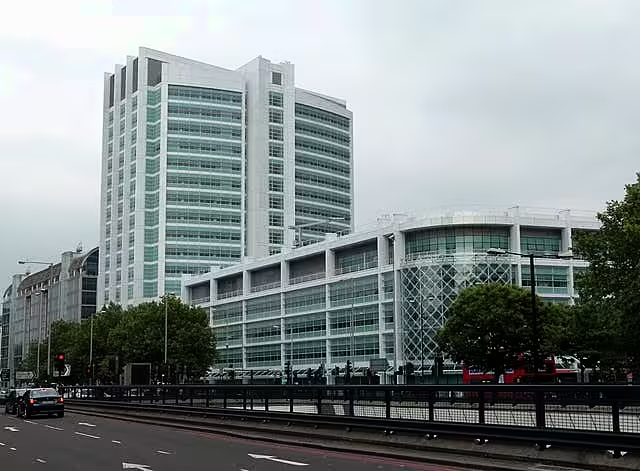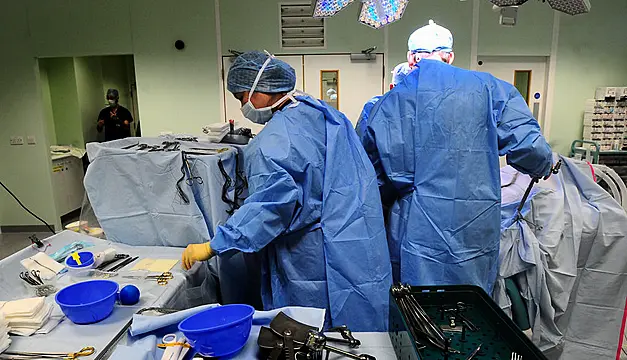Surgeons have performed simultaneous Caesarean sections with ovary and fallopian tube removal in women at high risk of developing cancer.
The operations on four women, reported by University College London Hospital and published in the Journal of Obstetrics and Gynaecology, mean women with inherited faulty genes do not need to undergo separate surgery to remove their fallopian tubes and ovaries.
The surgery was on women with inherited changes in their BRCA1 or BRCA2 genes, who have a significantly higher risk of developing breast and ovarian cancer.
Figures suggest 55 per cent to 72 per cent of women who inherit a harmful BRCA1 variant and 45 per cent to 69 per cent of women who inherit an unfavourable BRCA2 variant will develop breast cancer by old age.
Those with a faulty BRCA1 gene also have a 39 per cent to 44 per cent risk of developing ovarian cancer and the risk is 11 per cent to 17 per cent for those with a harmful BRCA2 variant.
The four operations reported in the journal were carried out between March 2018 and March 2022.

All women were referred during pregnancy to the University College London Hospitals’ familial cancer clinic to see whether they were suitable for surgery at the same time as Caesarean.
All the women agreed they wished to complete their family at the time of surgery.
Professor Adam Rosenthal from UCL, who performed the operations, told BBC Radio 4’s Today programme he was not aware of similar surgery in other countries.
He said it was beneficial “to get it all done at the same time” in one operation as this reduces risks from two surgeries.
“I’m sure we’ll be getting more requests for it, but I think it’s important to remember that women are getting older when they have children now and the older you are, the more appropriate it is to have your ovaries removed because your risk of ovarian cancer if you’ve got one of these genes increases with age,” he said.
“There’s also an increasing rate of Caesarean section.
“So we anticipate that, over time, more women will be eligible for this kind of procedure.”
He said it was “primarily their risk of ovarian cancer” that was being dealt with by the surgery rather than breast cancer.
But the risk of ovarian cancer “is going to be reduced by well over nine in 10 if you have your tubes and ovaries removed at the time of your Caesarean or indeed if you have it done as a separate procedure”, he added.
Claire Rodrigues Lee (45), from London, was one of the four women to have the operation.
She told the Today programme: “I knew I was having my son and I wanted to investigate my options because I knew I had the BRCA gene.
“I knew that I wanted to have my ovaries removed as soon as possible and I was actually just trying to determine how long after I had my son that I could have my ovaries removed.
“And, by doing my research, I came across an article with Professor Rosenthal and this other lady and I got in touch both with Dr Rosenthal and this other lady on Facebook to see what the options were.
“Obviously, I wanted to complete my family first so the fact that the option was there to have the ovaries removed at the same time as having my son by C section was definitely…a no brainer.”

She said she had the Caesarean “and then they handed me my son so I could, you know, meet him.
“And then they took him away, and my husband held him and they did whatever they needed to do with the baby.
“And then I went straight into the second part of the surgery, so it didn’t feel any different.”







